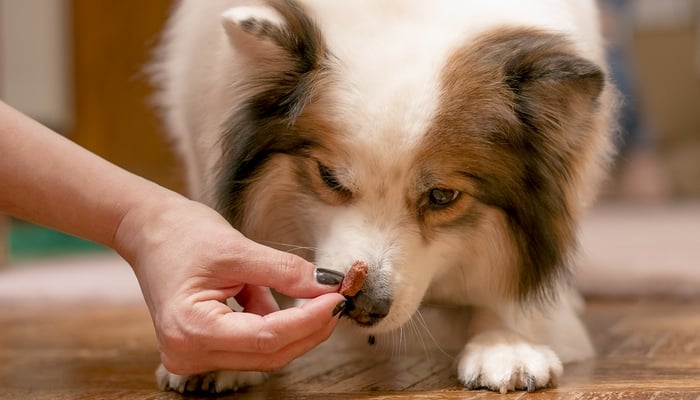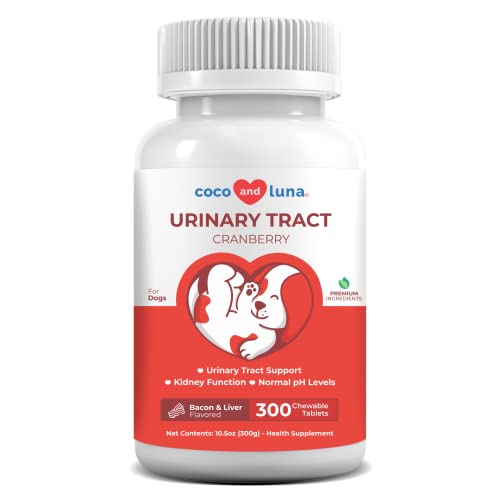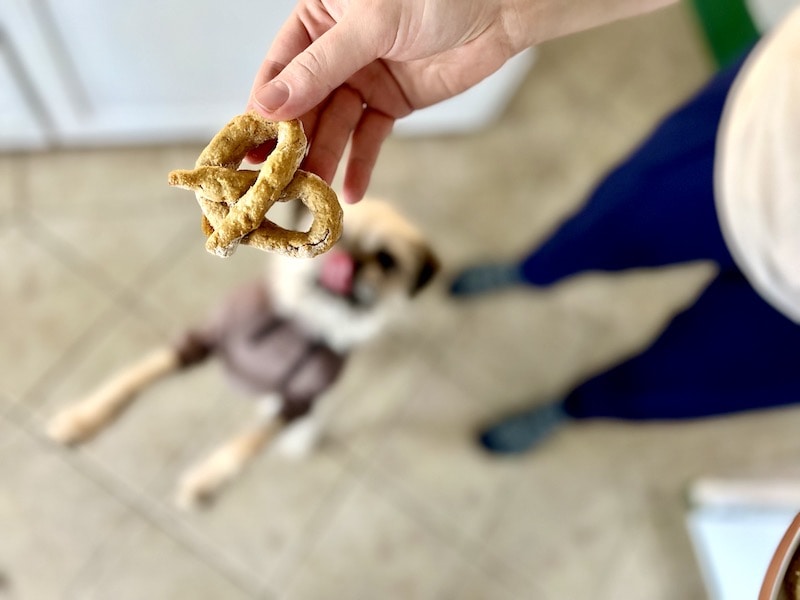Unique Pet Treats Providing Specialty Snacks for Your Dog

Vet-Recommended Dog Treats: Which Ones and Why? [Updated 2023]

There are many vet-recommended dog treats available in the market, depending on the need of your pooch.
It's important to understand that in most cases, vet-recommended treats for dogs are based on opinion, their own personal philosophies, which schools they attended, and what their professional experience has taught them.
The pet food industry is also constantly evolving; thus, the recommendations of vets may follow that trend.
In this article, we'll discuss what we, as pet owners, often hear veterinarians recommend to dog owners as the best choice of healthy dog treats.
This is by no means that you should choose these treats without doing your own research or consulting with a vet yourself.
Some veterinarians recommend standard commercial dog treats, while others may pick all-natural ones.
Some may encourage you to feed your pet homemade dog treats, while others may suggest a combinationof the three.
What your vet recommends shouldbe based on your dog's age, breed, weight, size, and medical conditions.
With thousands of dog treat options on the market available to purchase today, there's no shortage of choice.
Many claims to be vet recommended, but it's difficult to know if that is true.
It's up to you to do the due diligence to determine which treats come genuinely recommended and which may have paid for endorsements from licensed veterinarians.
I hope this list will give you a good head start on finding the best choices for your Fido.
TRY THIS:5 Best Dog Treat Jars for Storing Your Pet's Snacks
Which Dog Treats are Recommended by Vets?

All Natural Vet-Recommended Dog Treats
More vets these days prefer to advise owners to feed their dogs whole foods for treats over commercially produced treats.
Commercial dog treats oftentimes contain many fats, fillers, and chemical flavor enhancers. Whole foods are just natural foods that are not processed, like raw vegetables.
Contrary to popular opinion and according to research, dogs are actually omnivores, not carnivores.
Thus should be fed a variety of meats, fruits, vegetables, and grains.
Treats are often used for training or appeasement purposes.
Because of the frequency with which dogs consume dog treats, it is better to consider low-calorie, nonfat options.
What should you avoid?
Produce and lean meats provide these standards.
But, before recommending foods you should feed your dog, lets start with the crucial list of what you should not feed your dog.
The following ingredients have been proven to be poisonous and unsafe fordogs' health:
- Chocolate
- Raisins
- Grapes
- Avocado
- Xylitol
- Garlic
- Onions
- Alcohol
- Caffeine
- Macadamia nuts
- Yeast dough
- Raw, undercooked meat, bones, and eggs
- Cow-derived dairy
What is good for dogs?
Moving on to the ingredients in dog treats you should feed your canine, here are a few vet-recommended options that dogs tend to love:
- Oat-based cereal
- Carrots
- Apples
- Pears
- Sugar snap peas
- Green beans
- Peanut butter (make sure it does not contain Xylitol)
- Bananas
- Berries
- Dehydrated sweet potato
- Baked chicken or turkey (without the skin)
READ MORE: 10 Human Foods That Are Dangerous To Dogs

Commercial Vet-Recommended Dog Treats
As with natural treats, there are some commercially produced treats that owners should avoid.
For example, dog treats manufactured in China, just as dog toys, can harm your dog's health due to the differing food production standards there.
Rawhide should be avoided as well. While it is not toxic, it can damage the intestines or cause choking if not chewed properly before swallowing.
Dr. Deborah Shores, DVM, recommends the following single-ingredient dog treats (and she wrote about it inthis article if you want more details):

These treats are great because of their limited ingredient profile, beef liver.
Most dog foods and dog treats add synthetic Vitamin E and Mixed Tocopherols, which are preservatives to keep the treatsfrom oxidizing and to save money.

Many vets love Stewart's brand, and these dog treats are made with real duck liver and contain zero fillers or synthetic fats.
Similar treats which come highly recommended by vets for teeth cleaning and keeping your dogs trim and lean are Safety Grip Bully Stick Starter Packand Honest Kitchen Dog Treats.
Some additional holistic dog treats that are produce-based and supposedly more natural for dogs to eat includetreats from companies likeCrumps Naturalsand Fruitables.
Finally, you can also opt for making your own homemade dog treats.
It takes time, effort, and sometimes, more money.
But depending on how good of a dog treat recipe you get, these DIY options can be healthier for your dog and also be better for your pup's specific condition, age, potential diseases, and more.
Here arefree videos of dog treat recipes.
Overall, there are a few factors that can make some treats healthier than others.
The most important ones to consider are:
- No filler
- All-natural
- Organic
If you can find all-natural, organic dog treats with no filler, high in protein, and with the least amount of ingredients in them that are also vet recommended you have a winner!
RELATED:15 Best Healthy Treats for Dogs That Are USDA Organic Certified

Specialized Vet-Recommended Dog Treats
Usually, dog treats can also be made to cater to a dogs specific age, breed, weight, or medical requirements.
However, we aren't sure how much truth there is to that, and it's possible that it's simply just a marketing gimmick.
The opinion of vets on this is divided, and we've covered more of this in our article about the truths of dog food reviews.
Nevertheless, if those are the options you'd like to explore, here are a few:

- Wellness Puppy Treats for growing dogs
- Zuke's Hip Action Treats for aging dogs or those with arthritis (containing glucosamine and chondroitin).
- Coco and Luna Urinary Tract Treats (for dogs suffering from urinary tract issues)
- Old Dog Cookie Company Diabetic Treats
- Old Dog Cookie Company Arthritis Relief Treats
Reminder!
Always remember to consult with your vet beforehand
If your dog suffers from a medical condition, it is important to consult with your vet personally before feeding any type of dog treats, whether they are natural or just standard commercial ones.
Treats for dogs with diabetes are not going to be the same treats you give to a dog suffering from chronic kidney issues, for example.
You should also consult your vet if you have any questions pertaining to your dogs age and size with regard to diet.
Big, older dogs are going to have vastly different nutritional requirements and limitations than small-breed puppies.

When feeding your dog treats, remember that love doesnt have to come in the form of food.
Treats should only make up about 10% of your dog's total daily caloric intake!
Moderation is key. We've previously discussed the risks of diabetes, overweight dogs, and how obesity is a prominent epidemic among dogs today.
Vet-Recommended Dog Treats: Final Thoughts
Sadly, doggy treats oftentimes add to the problem by a large margin.
If your pooch is a picky eater, dont give in to feeding things you know are unhealthy but that the dog likes to taste just because it's easier.
This is the equivalent of feeding your child or yourself junk foodevery day.
Sure, it tastes better than a salad and is quicker to get, but it can have serious consequences over time.
While pet treats are a useful tool for training dogs, it is possible to overdo it.
Dogs can also become too reliant on treats, and in effect, they can actually train you to give them treats in exchange for decent behavior.
Make sure your dog is not forming an unhealthy dependence on treats.
FULL GUIDE:How To Make Homemade Dog Treats
10 Homemade Dog Treat Recipes (Vet-Approved)

The information is current and up-to-date in accordance with the latest veterinarian research.
Learn moreWant to learn how to make homemade dog treats from the comfort of your home? Youll be able to choose each ingredient, save money, and cook specifically for your pups preferences. The best news is that dog treat recipes are typically simple and easy to follow.
Keep reading to find 10 amazing dog treat recipes for dogs of all ages. Spoil your dog with healthy and delicious homemade dog treats! Whether you want to make a healthy dog treat, replace your pups favorite brand of dog biscuits, or cook up a soft dog treat, weve got you covered.
Keeping your dog healthy is important, so youll want to choose a healthy dog treat recipe. That means avoiding ingredients that arent good for dogs! Scroll down to find our favorite healthy treat recipes:
The Top 10 Homemade Dog Treat Recipes:
Healthy Dog Treat Recipes
1. Oat and Apple Pretzel Dog Treat Recipe
What could be cuter than a doggie pretzel? This easy recipe just needs four ingredients: oat flour, rolled oats, applesauce, and an egg. So healthy and simple, you might want to try one!
2. Cranberry & Oat Treats
Whether or not its a special Day, your pup will appreciate these delicious and healthy cranberry dog treats. Made with gluten-free oats, flaxseed, and antioxidant-rich cranberries, these dog-friendly cookies come together in minutes.
3. Pumpkin Peanut Butter Dog Treats
Help your pup celebrate fall with these tasty treats! While you sip on a PSL, your dog can enjoy treats made with pumpkin and peanut butter. The best news? These treats are a lot like cookies, so youll have no trouble throwing them together quickly.
4. Breath-Freshening Dog Treats
Does your dog have bad breath? This recipe from Health Starts in the Kitchen has some unusual ingredients (like parsley and activated charcoal), but it will approximate Greenies and save you quite a bit of money!
Peanut Butter Dog Biscuit Recipes:
If youre looking for traditional dog biscuitrecipes, youre in the right place! These easy recipes will help you make crunchy biscuits with all kinds of shapes and flavors!
5. Peanut Butter Dog Biscuit Recipe
With the help of a fun cookie cutter, you can whip up peanut butter biscuits pretty enough to give as a gift! Throw these simple biscuits in the oven and youll have crispy treats in about 20 minutes.
6. Bacon Glazed Biscuits
These biscuits are pretty, full of great ingredients, and easy to make. But what puts them over the top is the glaze, a mixture of peanut butter and bacon fat. What dog could resist that?
7. Spinach, Carrot, & Zucchini Dog Biscuits
If youre looking for something a little more veggie-heavy, you might want to try this recipe. It incorporates carrots, spinach, and zucchini, plus pumpkin, peanut butter, and oats, into a classic-looking dog biscuit!
Soft Dog Treat Recipes:
Does your dog prefer soft treats? Here are some of the best soft dog treat recipes, including donuts and cupcakes!
8. No-Bake Peanut Butter Dog Treats
Looking for a soft dog treat recipe thats quick and easy? Try this one from Live Laugh Rowe, which uses coconut oil and peanut butter. Your dog will thank you!
9. Carrot Peanut Butter Pupcakes
If you and your dog are celebrating, why not roll out the pupcakes? These soft, dog-friendly cupcakes have a tasty peanut butter yogurt frosting and you can top them with homemade dog biscuits for extra flair!
10. Peanut Butter Bacon Donuts
These doggie donuts look sweet and good enough to eat but dont be fooled! Theyre savory treats made with oats, peanut butter, and a sprinkling of bacon bits. Guaranteed to be a hit!
Homemade Dog Treats: Conclusion
Now you know how to make homemade dog treats with these 10 delicious recipes! Whether youre looking for soft dog treats or homemade dog biscuits, these recipes will turn you into a doggie chef before you know it. What you feed your dog is important, and this way you can control every ingredient. Just remember these are still treats and as such, they should only be fed in moderation since they are not a complete and balanced diet and they do add up the calories. Gone are the days of having to buy expensive dog treats!
Prefer to skip the cooking? Choose from our favorite dog treat brands!
Featured Image Credit: The team at Hepper









